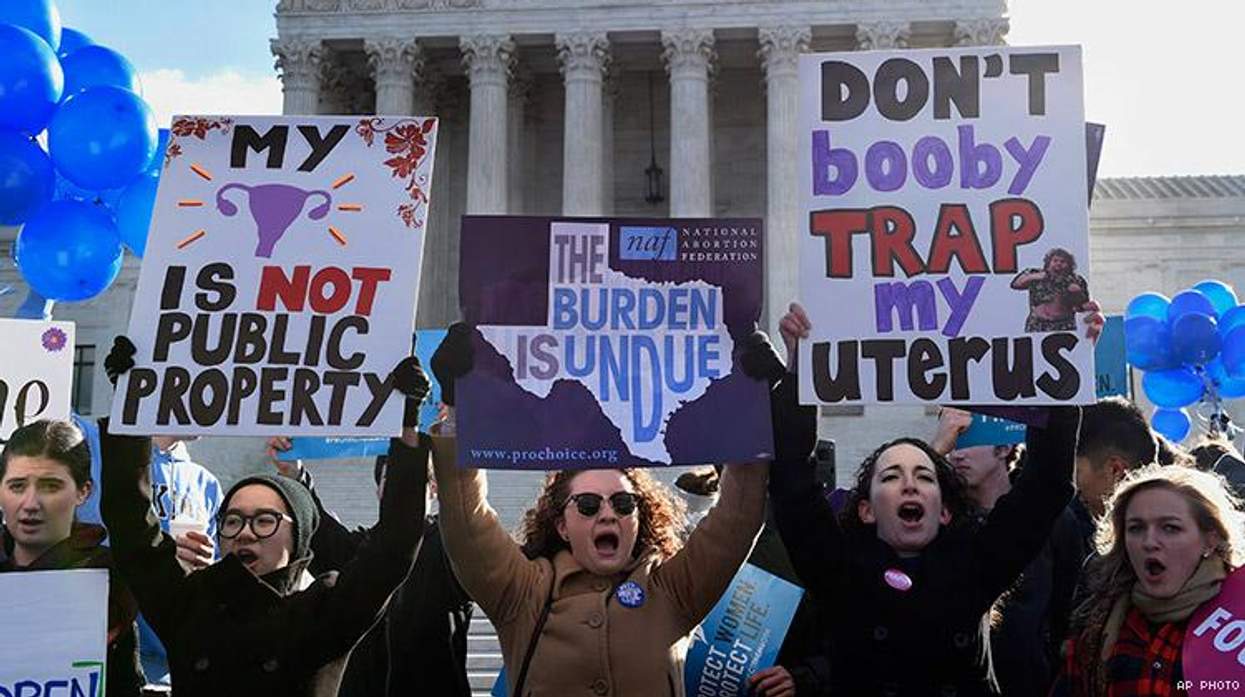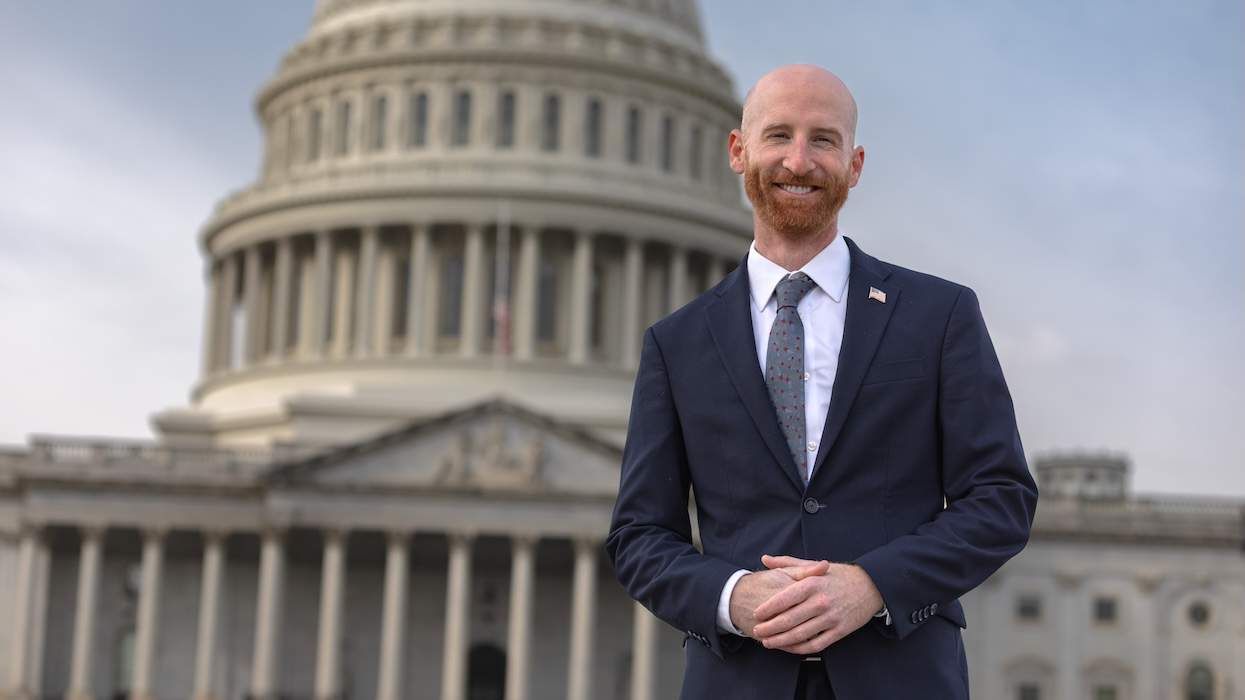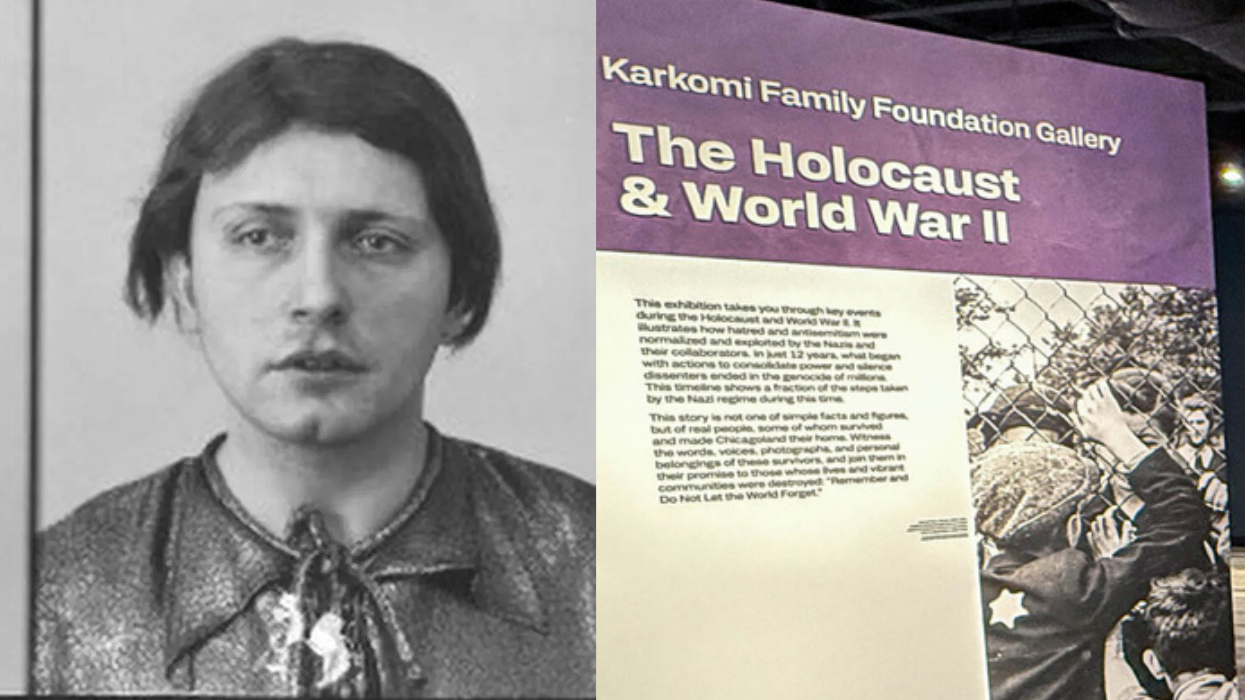Long before the Supreme Court declared marriage equality the law of the land, we knew there would be backlash.
Since then, we've seen a barrage of local and state-level attacks on LGBT equality and civil rights in the form of "religious freedom" legislation and anti-trans "bathroom bills." Overall, our movement has done a great job of mobilizing to combat this type of legislation, but it's easy to feel like we're always playing defense. Is there more we could be doing to stop harmful legislation before it passes?
Fortunately, we don't have to start from scratch when it comes to strategizing the best ways to be vigilant and proactive. The reproductive rights movement has spent the last 43 years waging a very similar war against state-sponsored, religion-based backlash to Roe v. Wade, and longtime pro-choice activists are eager to help us learn from their mistakes and victories -- so we don't have to spend the next 43 years fighting.
"Stigma is now a political tool used by our opponents in both movements," Kelly Baden, the director of state advocacy at the Center for Reproductive Rights, tells The Advocate. "Women who need abortions were turned into abstract boogeymen by the conservative right, and now they're doing the same thing to transgender people with so-called bathroom bills, and with LGBT couples in general with religious freedom bills."
"But as we know," Baden adds, "LGBT people and people who need abortions are not the enemies of everyday American people ... we are the American people."
Our movements aren't wholly separate, of course -- at least half of the letters in our ever-growing acronym represent people in possession of a uterus, all of whom deserve to have their constitutional right to choose whether or not to have children with it protected. For many of those people (myself included), the fight to preserve LGBT equality and reproductive rights represent two sides of the same coin.
Gretchen Borchelt, the vice president for reproductive rights at the National Women's Law Center, seconded the notion that our movements have a lot in common. She also believes many of the lessons she's learned in more than 20 years of reproductive rights activism can be directly applied to current fight against the marriage equality backlash.
"I think one of the early things we saw after Roe was an effort to enshrine religious protections for individuals and organizations that refused to play a role in providing abortions," Borchelt tells The Advocate. "Some of those protections started passing immediately in 1973 after the Supreme Court ruling, when reproductive rights activists weren't really paying attention because they thought they'd won, and since then they've been expanded further and further and ultimately caused immeasurable harm."
"There's a lesson there," Borchelt continues. "We have to ensure that if religious exemptions are being granted, they're extremely narrow, and there's no possibility that they could become so broad they swallow the rights and protections the court has guaranteed."
Both Baden and Borchelt also pointed out that the learning goes both ways.
"There's recently been a huge rise in personal stories shared by women who've had abortions," Baden notes. "Which is a strategy the reproductive rights movement is learning directly from the LGBT movement. It's critical for people to realize that we're not boogeymen -- we're actually people you already know and love -- your friends, your neighbors, your coworkers."
Baden says this kind of storytelling also allows both movements to harness the powerful voices of nonpolitical spokespersons -- whether that's Beyonce or Bruce Springsteen speaking out against North Carolina's House Bill 2, or actress Amy Brenneman sharing her own abortion story with the Supreme Court justices in Hellerstedt v. Whole Women's Health.
In both movements, "religious liberty" arguments have been challenging to rebut due to clever branding by the other side (another commonality between our movements can be found in this shared opponent). Freedom of religion is generally considered as a fundamental American value, so speaking out against bills claiming to protect "religious freedom" requires some finesse, even when it seems obvious to us that the legislation is actually about legalizing discrimination.
Baden points out that when reproductive rights activists have navigated this tricky terrain successfully, they've done so by partnering with pro-choice, faith-based groups to remind the public that no one political opinion has a monopoly on faith, and that women needing abortions -- not to mention abortion providers themselves -- come from a wide variety of religious backgrounds. It's a strategy the LGBT movement has also begun to employ with some success.
"We cannot cede the ground on the faith perspective," Baden says. "Religious freedom is not about restricting other people's rights or ability to live with safety and dignity. ... The American experiment is one of constantly trying to strike the balance between people's religious rights and constitutional rights. The pendulum has swung back and forth on that since the founding of the country, and right now the pendulum has swung too far into the camp of not protecting people's basic civil rights."
The supposed dichotomy between religious freedom and equal rights will also feel familiar to veterans of the civil rights movement, as U.S. Attorney Loretta Lynch indicated in her groundbreaking speech last week affirming the rights of transgender Americans. Lynch, herself an African-American woman and North Carolina native who lived through the Jim Crow era, compared that state's new transphobic law known as House Bill 2 to those segregationist laws, which made, as she said, "a distinction without a difference."
Crucially, religiously affiliated organizations aren't allowed to discriminate against people on the basis of race, despite the fact that numerous religious groups tried to claim that their "sincerely held religious beliefs" should exempt them from compliance with the Civil Rights Act of 1964. Those same complaints are now being filed by schools, businesses, and nonprofits affiliated with religious groups that oppose LGBT equality.
"Civil rights organizations and other progressive movements also have a stake in fighting these discriminatory laws," Baden points out. "The same people are pushing all of these restrictions on our rights in state after state. ... We have a common opponent, so it only makes sense that we strategize together and collaborate around how to defeat them."
She went on to explain that North Carolina's HB 2 (not to be confused with Texas's HB 2, which restricts abortion access) has been shorthanded as a "bathroom bill" affecting transgender people when actually it includes a number of provisions that deeply affect other marginalized groups too.
"There are some great reasons for that shorthand," she says. "It's certainly helpful to show the trend happening with all these bills that target trans people collectively, so people know what's at stake in the big picture. But the truth is, HB 2 is about much more than LGBT rights specifically and has a whole host of other provisions that are harmful to broader social justice movements."
In other words, the more we can recognize our causes as common and work together to fight our shared opponents, the more powerful we'll be -- something the conservative, religious right has known for years.
"We didn't get here by accident," Borchelt explains. "The religious right in particular and conservatives in general spent decades investing in local and state-level politics, both in the electoral process and the and pipeline of leadership. It was all very intentional, and it happened while progressives weren't really paying attention at the local level -- that's an across-the-board issue that all progressive movements have finally begun to recognize."
According to both Borchelt and Baden, continuing to "not really pay attention" to local politics is one of the most dangerous things the LGBT equality movement could do.
Anti-abortion legislation has been passed sneakily, hidden within the small print of everything from bipartisan motorcycle safety bills (which resulted in #MotorcycleVagina becoming a trending hashtag last summer) to anti-human-trafficking bills while reproductive rights activists blinked. And Baden points out that North Carolina's HB 2 was passed "under similarly sneaky circumstances" by masquerading as a "commerce bill." (In addition to the anti-LGBT components of HB 2, the law also bars municipalities from enacting a minimum wage higher than the state's.)
"If the LGBT movement wants to avoid the 40 years of struggle we've endured in the reproductive rights movement, we all need to become vigilant citizens who are actively engaged in very local politics in our regions on an ongoing basis," Baden advises.
"The importance of knowing who your local lawmakers are cannot be overstated," she continues. "These are people you see at your farmers' market and your kid's school play. There's so much opportunity there to build relationships with the people who have influence when it comes to these types of critical policies. And it's important not to just know them, but to participate in whatever they're up to -- look up their Twitter handles, find their Facebook groups, and show up at town hall meetings and other events to voice your opinion whenever you can."
When it comes to local politics -- which are hugely important when it comes to anti-LGBT legislation at the state level thanks to that well-laid conservative pipeline -- the squeaky wheel gets the oil.
But you don't have to squeak all alone. Because we're currently witnessing such multi-issue attacks on our rights in so many states, it's likely that many groups in your community -- whether they're centered around civil rights, reproductive rights, LGBT equality, or even faith -- are already vigilantly watching and preparing for what's next. Getting involved with those groups, either on the ground or online, can open up opportunities for not only wrangling politicians but also actively changing hearts and minds in a community, which can often take the wind right out of the sails of dangerous legislation before it ever makes it to the table.
"State-level policy work has to employ a range of tactics, since the circumstances and entities at the table are different everywhere," Borchelt concludes. "It's not one size fits all. ... But one of the most effective strategies in tackling any state-level issue like this is to build a broad-based coalition of groups that care about these issues. Because if we can get everyone who has a stake in it to fight together, we'll be much stronger. And so much more powerful."
Read more of Kristina Marusic's work on Facebook, and follow her on Twitter @KristinaSaurusR.




































































Charlie Kirk DID say stoning gay people was the 'perfect law' — and these other heinous quotes